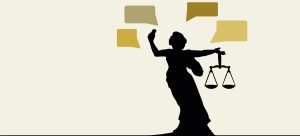(Sorry, only in Danish)
Summary of the report
This report investigates the extent of illegal comments on selected Danish Facebook pages. On the basis of a representative sample, the report estimates that one out of 15,000 comments on Danish Facebook pages constitutes a hate crime.
In particular, a representative segment of 63 million comments on 676 Danish Facebook pages has been investigated – of which 0.0066%, roughly speaking, violate provisions of the Danish Criminal Code, including threats, deriding and demeaning remarks directed at certain groups, incitement to criminal action, and express support of terror.
For quite a while, political and public debate has been absorbed with the question of illegal content on Facebook, including threats, revenge pornography, terrorism, etc. The Danish government published in December 2021 a draft law on the regulation of social media that will obligate Internet providers to remove ”illegal” content within a brief period. The proposed bill comes in the wake of similar legislation in, for example, Germany (the so-called NetzDG law) and the pending Digital Services Act at the EU level. According to the government, the legislation is motivated by the fact that, despite comprehensive moderation, there are still ”far too many examples” of illegal content sharing that no one “takes responsibility to have removed”. This is a claim, however, that is not documented or otherwise qualified.
But what actually is the extent of illegal content on social media? It is difficult to assess since the overall extent of content is enormous, and there is also comprehensive content moderation taking place by both the social media and users themselves (for example, Facebook itself, page owners, and users moderate content on a Danish medium’s Facebook page).
However, it is important to get a sense of the problem’s true extent, so that proposed legislation is not based on assumptions, prejudices, or singular instances that, in the worst case, may lead to solutions that are worse than the problem. The result of imprecise legislation may be that a number of completely legal comments will be deleted as a consequence of the legislation, and it may also be that one does not come close to solving the problem one hopes to solve.
The report takes its starting point in 2,400 selected representative comments that, in the analysis ”Angreb i den offentlige debat på Facebook” (”Attacks in the public debate on Facebook”) have been characterized as “hateful”.
All 2,400 comments have been subjected to thorough legal analysis with respect to the most relevant provisions in the Danish Criminal Code. It was found that 5 comments violate § 136.1 (incitement to crime), and 6 comments violate § 266 b (hate speech). That is, even though the 2,400 comments might be viewed as “hateful”, only a very small number of them (0.46 %) were objectively illegal.
It must be added that these numbers are subject to some uncertainty in relation to the representativity of the selected comments and in relation to the number of illegal comments found.
In absolute numbers, we are talking about a considerable quantity of illegal comments that, despite content moderation, are found on the Danish Facebook pages investigated (estimated 4,149 comments out of 63 million). But, relatively speaking, it is a very small proportion of the comments that are assessed to be actually criminally punishable. Even if it is assumed that the analysis underestimates in a material way the extent of illegal content, the foundation has been laid that the share of the overall content on Facebook that is illegal is very low.
It must also be pointed out that the sample of comments investigated comes from the Facebook pages of Danish politicians and media, which (it must be presumed) contain more hateful and confrontational comments than in the Danish Facebook milieu generally. There are undoubtedly more hate attacks on the Facebook pages of the tabloid Ekstra Bladet or the New Right Party (Nye Borgerlige) than there are for such public groups as, for example, knitting clubs, horse lovers, or cosplay nerds.
The relationship between illegal and legal ”hate attacks” in the study illustrates at any rate that one can find on Facebook a lot of content that – depending on the eyes that see it – is unpleasant or repulsive but not necessarily illegal.
This outcome calls for a more nuanced debate about the character of unpleasant, repulsive, and harmful content on social media, and it spurs reflection on the extent to which the problem may be solved through tighter legislation without leading to widespread adverse effects on legal comments and, thus, the practical exercise of freedom of expression by Danes.
Therefore, a heightened obligation on social media to be even quicker at removing illegal content is hardly a solution to the problem of unwanted content on social media. Since the model suggested by the government is also assessed to have a significant negative influence on freedom of expression for social media (see, for example, Justitia’s report Digital ytringsfrihed og sociale medier (Digital Freedom of Expression and Social Media) from May 2020 and Rushing to Judgment from January 2021), the results in this report should urge additional circumspection and debate prior to legislative measures.

The full report (sorry, only in danish):
Read our previous report about illegal deleted comments on Facebook:





